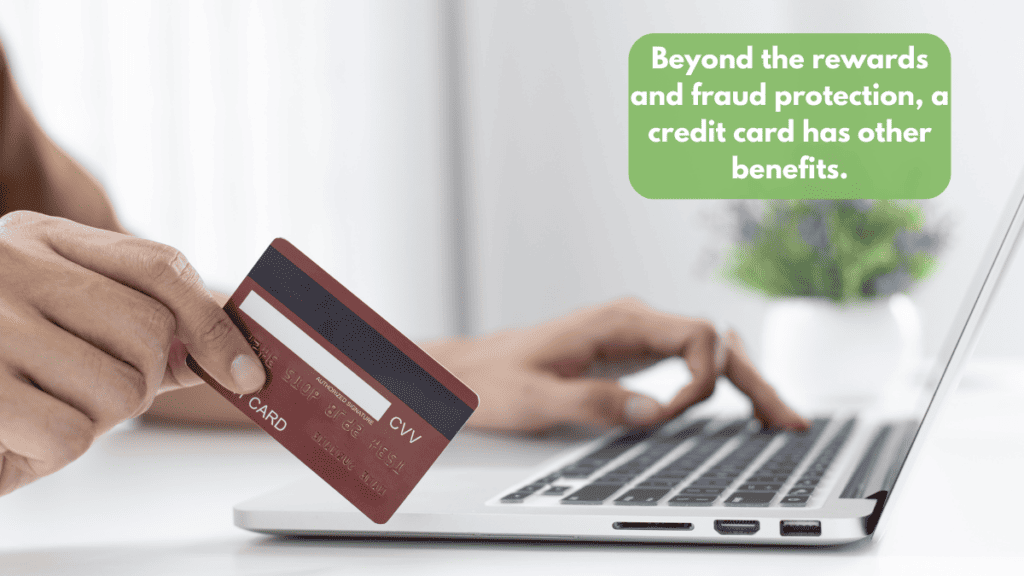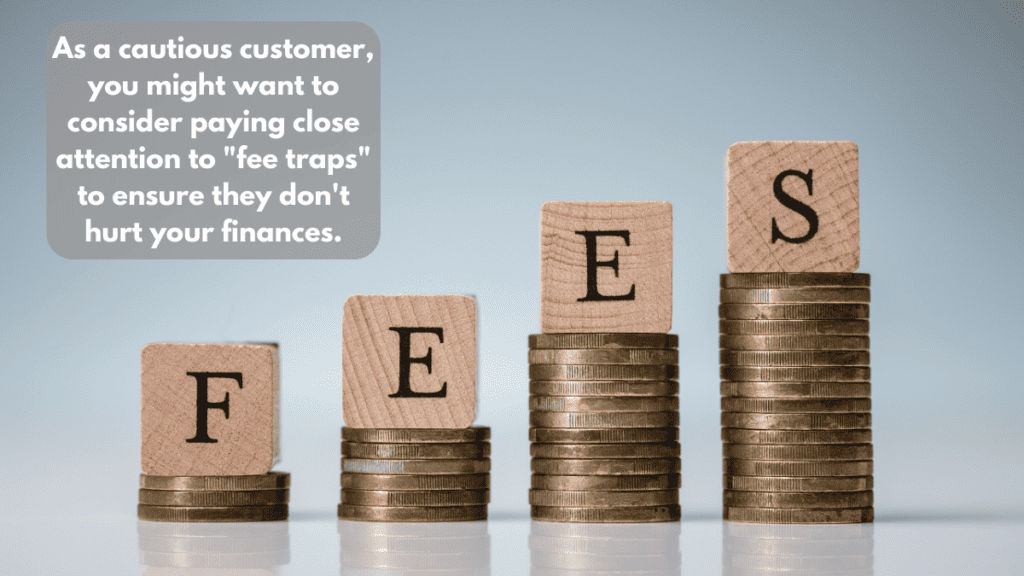Credit cards feature prominently on the financial spectrum of tools and resources. But how can you start using credit cards like a pro and improve your financial health?
Here’s what you need to know if you want to use your credit cards to their maximum potential.
What Do the Experts Say About Credit Cards?
A credit card comparison page confirms that consumers should shop around for the best deals. Financial advisors across the board agree that meticulous selection of credit cards is imperative for keeping costs as low as possible to guard against unreasonable debt-to-income (DTI) ratios.
Be Savvy About Choosing a Card
These days, customers are much savvier about the types of credit cards they are applying for. Cash back, rewards, low-interest APRs, and other options are now being used to reduce the burden of credit card debt as a percentage of overall debt.
People are selecting credit cards with cashback offers (between 1% and 3%), low APRs (0% for 12 months or 18 months), and bigger rewards.
Pay Your Card In Full Each Month
Pros say that it’s imperative to repay credit card balances in full before the end of the month. This is the most challenging aspect of sensible credit card practices.
The only way to dramatically reduce the burden of credit card debt is to use the savings and rewards offered by these lines of credit to your advantage.
For example, big-ticket purchases on credit cards are typically associated with cash back. By paying it off in full, the discount is the cash back.
Understand that Credit Cards Produce Profits for Banks
Although 166 million people are using credit cards, that number doesn’t do justice to the checks and balances that banks are putting into play to protect themselves against default. Banks rely heavily on their high-yield cash cows like credit cards.
The U.S. Government Accountability Office reported that credit card debt in the country has reached over $1 trillion. It is in an issuer’s best interest for credit card users not to pay their balance in full each month because this allows them to profit from interest rates.
By understanding how banks profit from credit cards, you can use your card more wisely and ensure more money ends up in your pocket vs. your bank’s coffers.
Why the Experts Use Credit Cards
When used responsibly, credit cards are the best option when it comes to making purchases. But why do credit cards reign supreme above other payment options?
Cash Is Silly
Who uses cash anymore? Not me, and not many people I know. Unless you are overcoming a serious debt issue and like the envelope budgeting method, never use cash unless you have to.
Think about the downsides of cash. If you lose cash, it’s gone. There’s no recourse. If you use cash, you don’t have good records. When you use cash, you don’t get rewards. Plus, using cash means that you are not building credit.
Using cash generally doesn’t benefit your financial health.

Debit Cards Are a Bad Idea
Debit cards are a bit better than cash, but not much better. There are a handful of reasons why. The biggest is that your card is linked right to your bank account.
When there are big card data thefts, people who use a debit card are at the worst risk. If someone steals and uses your account number, the money vanishes from your bank account. This can lead to bounced checks, fees, costs, and hassles.
Since it’s a card, you can get the money back, but it is a lot of work. Plus, you don’t just get off scot-free. You may still get stuck with fees.
Credit Cards Are Safest
Even if your credit card is involved in a data breach, it’s not a big concern.
Why is this? If it is used, the banks just take the charge off my card, and I fill out a form legally acknowledging that the transaction was fraud. A few minutes of my time is the entire cost to me.
A more practical benefit to using credit cards is that they offer us, as consumers, protection against various things.
Have you ever bought something over $50 only to find it to be defective when you got home or had a dispute with a retailer over erroneous charges? If you have, then using a credit card instead of cash or a debit card avails you to the Fair Credit Billing Act, which can potentially limit your maximum liability to $50.
Beyond that benefit, some credit card issuers will even extend warranties on certain items. We’ve never had to use that ourselves, but I can see how that would be helpful if the computer we bought last year decides to break down on me in the next few months.
Stretch Your Budget
It may seem counterintuitive, but if you use them wisely, credit cards can help you stretch your budget at times. It’s less applicable in today’s interest rate climate, but it can allow you to play the float between purchasing an item and paying for it.
You can also see this when you travel and need to rent a car or stay at a hotel. If you use a debit card, they’ll place a hold on your card for a certain dollar amount, meaning that you can’t access that money. However, with a credit card, your funds are accessible right away.
True, the hold falls off when you leave the establishment, but many find it inconvenient to have their cash “frozen,” something you will not encounter when using one of your credit cards.
Big Rewards
Rewards are another important reason to use a credit card instead of a debit card or cash. I took a trip to Israel for about $70 each way. I flew to Portland for $5. Las Vegas, $5. The last time I paid full price for a flight was about two years ago.
It wasn’t a cash back credit card that made this happen. It was a combination of several miles and points cards that made it happen. Ever since I took a trip to London, Paris, and Amsterdam for half price, I have been an enthusiastic travel hacker trying to see the world for free.
One of the best perks of using credit cards is the ability to earn free rewards points that can be used on a wide range of things, from cash to free airline miles. My wife and I churn credit cards, and I can attest that our ability to earn enough for a free trip does make it enticing to continue.
What if earning free trips isn’t your thing? That is no problem since many credit card companies will give out rewards such as free cash or gift cards that can be used at various retailers.
I may sound like a cheerleader for churning credit cards. While I do like the benefit, if spending is an issue, then no free trip is worth racking up all sorts of debt in the long run.

Other Benefits
Beyond the rewards and fraud protection, a credit card has other benefits. Depending on your card, those include a complimentary concierge service, price protection, extended warranties, lost luggage protection, additional travel protection, rental car insurance, and more.
Be sure to read through your card benefits to make sure you are not leaving anything on the table.
Is It Ever Okay To Charge More Than You Can Afford?
Standard personal finance advice is to use credit cards responsibly and pay off your balances in full every month. Some experts go so far as to say that you should avoid credit cards altogether if you cannot do that.
But, like most things in life, nothing is black and white. There are a lot of gray areas that blur the lines between responsible and reckless, cautious and crazy. These are areas where we may not be doing the “right thing,” but we’re doing the best we can.
One such scenario is living on credit cards. In an ideal world, living on credit cards wouldn’t be an option. But in this imperfect world, when is living on credit cards the right thing to do?
To Avoid Homelessness
Let’s say you come across hard times. You lose your job or get in an accident, and your whole financial world is turned upside down. In this case, an emergency fund would come in handy, but what if it wasn’t enough? What if you needed extra help yet couldn’t work?
In some cases, you may have the option of moving back home with your parents or staying with friends for a bit. But, depending on your situation, doing those things is either really inconvenient for you or them or simply impossible.
If you don’t have the funds to pay rent and risk being homeless, use your card to get by until you can find a cheaper place or until you get back on your feet.
Feed the Family
Another case where living on credit cards might be the right thing to do is if it means feeding your family or going hungry. My first suggestion, aside from using credit cards, would be to apply for government assistance or food stamps to help survive a financial rough patch.
However, depending on your income and situation, you may not be eligible for assistance. If you are not eligible, have a family to feed, and do not have the funds, use your credit cards to ensure there is food on the table while taking steps to save at the grocery store.
Dealing With a Cash Flow Issue
Sometimes, your cash flow doesn’t work well with other deadlines in life, such as rent or bills. For example, if you are self-employed, you can go weeks without a check. In that case, you know the money is coming, but you may not have it when your bills are due.
Many of us have also dealt with the long wait to get paid when starting a new job. It always feels like it takes a full month to get paid. In situations like this, using your cards to cover your bills and pay them on time may be a good option.

Tricks To Avoid Credit Card Fee Traps
Credit cards come with a certain amount of fees. As a cautious customer, you might want to consider paying close attention to “fee traps” to ensure they don’t hurt your finances.
Here are some common fee traps that you should watch out for.
Rising Interest Rates
Credit card companies are legally required to inform you about rate changes, but it’s easy to miss notifications like this amidst all the junk mail and emails you get daily. They may even implement a rate change for you and have a valid legal reason.
For example, your interest rate can increase if you miss a payment. In February 2010, the passage of the Credit Card Act limited the situations when card companies can raise your rate, but there are still plenty of scenarios where it can happen.
New, Unexpected, or Increasing Fees
There are many things credit card companies can charge you for doing. Having a surcharge on a cash withdrawal or other card usage activities makes sense. But did you know that some cards charge an inactivity fee?
This means that you get charged for not using your card. That’s just one example. Watch out for changes to the norm, and read your contract carefully to ensure you know how to avoid card fees.
“Checks and Balances”
Comparing credit cards is more complex than people may think. Too many people glance over the basic details of the card and then apply for whichever one sounds best.
The problem is that there is a lot more to cards than what you see at first glance. Upon further comparison, the card that looks great upfront might be horrible for your finances.
For example, the low APR may sound great, but what if it is hidden in the fine print that the low APR expires after six months and then becomes exceptionally high?
This is what is meant by “checks and balances.” The card will offer something great and advertise that, but there are plenty of negatives to balance out the positives.
The bottom line is that you shouldn’t make a hasty decision about a card because your choice could have a bigger impact than you think. Always read the fine print.
Expert Strategies for Fulfilling Credit Card Bonus Requirements
Many financial experts will use credit cards and sign up for new ones to take advantage of bonuses. These can be a great way to maximize your spending and fast-track your rewards.
However, it’s essential to make sure you fulfill the spending requirements to receive the bonus. Here’s how to ensure you unlock the full potential of credit card sign-up bonuses.
Buy Gift Cards
The easiest possible solution is to buy gift cards at the grocery store to meet your minimum spend. For gift cards you can use anywhere, like a Visa gift card, you may have to pay a fee of $3 to $5 per $500 card. This is worth it for cards that give you up to 50,000.
If you buy Visa or American Express gift cards, you can use them anywhere at your leisure and rest easy knowing you have already hit the spending requirement for the big bonus.
Otherwise, if you buy one for a store, make sure it is one you shop at regularly and will not spend extra just because of the gift card. Think of Amazon or the grocery store for this.

Open a New Card in Advance of a Big Purchase
When you have a large purchase coming up, such as needing to replace a piece of furniture or buying a new laptop, open a new card with a bonus that aligns with your purchase.
If a credit card company offers a 50,000-mile bonus for spending $3,000 in the first three months of card ownership and you are getting ready to spend $3,500 on new furniture for your living room, put that big purchase on the new card to rack up extra miles.
Use Your Card for Every Purchase
It’s much easier to fulfill the sign-up bonus requirements if you put your other cards away and just use your new card for all your purchases. Take your other credit cards and debit cards out of your wallet and only use your new card for a few months so you receive your bonus.
Get Help From Family and Friends
This can be risky, so only do it with loved ones you trust. Ask your family and friends if you can pay their upcoming bills and have them reimburse you via cash, check, or Venmo.
You only want to do this with people you trust because you want to avoid running the risk of not getting paid back once you pay their bill. However, if you have trustworthy family and friends willing to help you, this can help you meet minimum spending requirements faster.
The Bottom Line
Credit cards can be a helpful financial tool if you know how to use them right. There’s a reason why many experts use them in their day-to-day lives, and the benefits of having a card can be substantial when you know how to minimize costs and maximize rewards.
Just make sure to pay your card in full each month and watch out for fees. If you do that, you’ll successfully use credit cards like a pro!


